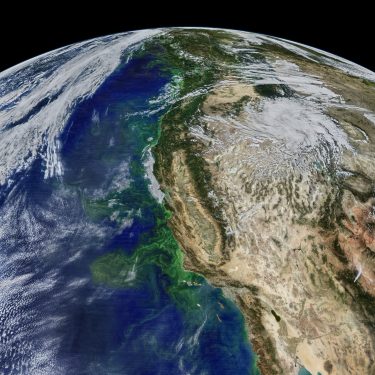
Dozens of scientists, as well as underwater drones and other high-tech ocean instruments, will set sail from Seattle in mid-August. Funded by NASA and the National Science Foundation, the team will study the life and death of the small organisms that play a critical role in removing carbon dioxide from the atmosphere, and in the ocean’s carbon cycle.
More than 100 scientists and crew from more than 20 U.S. research institutions will embark for NASA’s month-long Export Processes in the Ocean from Remote Sensing, or EXPORTS, oceanographic campaign. The University of Washington is leading one of the expedition’s projects, with several others led by UW School of Oceanography alumni who are now faculty members at other institutions.
“Understanding, and eventually predicting, the oceans’ role in fixing and exporting carbon to depth will require sustained, long-term measurements,” Craig Lee, an oceanographer at UW Applied Physics Laboratory and faculty member at the School of Oceanography, said. “EXPORTS takes us a step farther down that path, by advancing the use of long-endurance robotic vehicles — profiling floats and underwater gliders — for collecting biological and biogeochemical observations.”
A NASA event Aug. 9 in Seattle will kick off the expedition.
Read more at UW Today »
